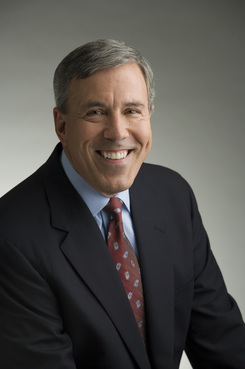Managing Partners' Frustration Mounts as Law Firm Innovation Stagnates
A new survey shows that law firm leaders are increasingly fed up with their partners' resistance to change. Meanwhile, half of firm leaders said there's nothing especially different about their firms compared to their competitors.
May 21, 2018 at 03:21 PM
5 minute read
The original version of this story was published on The American Lawyer
 Photo Credit: Pathdoc/Shutterstock.com
Photo Credit: Pathdoc/Shutterstock.com Give your managing partner a hug. Odds are he or she is increasingly frustrated.
Because of you, stubborn partner.
That's one takeaway from the 10th annual Law Firms in Transition Survey released Monday by legal consultancy Altman Weil Inc. The survey of 801 leaders of firms with 50 or more lawyers showed that a record 33 percent expressed “low” confidence in their firm's ability to keep pace with challenges in the legal market.
This pessimism has grown steadily since the survey began asking the question in 2011, when a mere 8 percent showed a low-level of confidence in their firm's adaptability, but it spiked this year, up from 24 percent in 2017. Meanwhile, a record low number of law firm leaders expressed high confidence: just 5.6 percent; down from 8.6 percent a year ago.
That correlates with managing partners' growing disbelief in their partnership's ability to adapt. A record 58 percent of managing partners rated their partners' level of adaptability to change as “low.” That number was 48 percent in 2014. A mere 1.5 percent of leaders this year gave their partners “high” marks in that category; down from 4 percent as recently as 2016.
“Law firm leaders need to engage their influential partners now in the thoughtful consideration of current market change and likely future outcomes,” stated the Altman Weil report. “Those partners need to care about the future of the firm—or, at the very least, get out of the way.”
A record 68.6 percent of leaders said the No. 1 reason they aren't doing more to change their legal service delivery model is because partners resist efforts to change. That number has jumped from 44 percent in 2015, which made it the third most-cited reason that firms aren't doing more to change.
In 2015, the most-cited reason was clients not asking for change, which 62.7 percent of leaders cited. In a sign that clients are wielding more purchasing power, that percentage has since fallen every year thereafter to a low this year of 54.7 percent.
Thomas Clay, a principal at Altman Weil who co-authored the survey, said the report showed only about a third of firms are truly committed to pursuing innovative ideas. But it skewed much more heavily toward large law firms, suggesting to Clay that bigger firms will continue to separate themselves from the pack as those investments pay off.
 Tom Clay.
Tom Clay. “The whole profession is changing rapidly, and to just drift along, make incremental changes and not have a dedication to innovation in some way seems idiotic to me,” Clay said. “And the more vexing thing from a firm standpoint is the bigger-sized firms are doing more and doing it faster. But there isn't anything they are doing that smaller sized firms couldn't do, realistically. Mostly all of the innovations available in the way you serve clients are available to everyone.”
One other reason firms may be reluctant to invest in efficiency-focused initiatives is that they don't always pay off right away.
For instance, about 53 percent of firm leaders said they had given compensation rewards to partners who are more efficient. But only 47 percent of those leaders said that resulted in significant improvement. Nearly 10 percent said it didn't, and nearly 44 percent said it was too soon to tell.
That is a quandary firm leaders will be eager to solve, because they do not view a focus on efficiency as a passing fad. A full 94 percent said a focus on efficiency is a permanent trend in the legal services industry.
For some firms, the survey stated practicing more efficiently can be a way to differentiate your offering, something many firms struggle to do. Altman Weil for the first time this year asked firm leaders if, “in their most candid assessment,” they felt their firm was “clearly and specifically differentiated” from its peers. Half responded “no.”
The survey also showed that firms who self-assessed themselves as “differentiated” also reported greater success in implementing efficiency tactics. For instance, 75 percent of “differentiated” firms that shifted work from lawyers to paralegals said the tactic was effective, compared to 54 percent of “non-differentiated” firms who found the tactic effective.
“Differentiation is meaningful,” Clay said. “If you sit there as a managing partner who fills out this survey and say we're not differentiated as a firm, then you're not doing your job.”
➤➤ Want to receive the latest news about change in the legal industry? Sign up here for The Law Firm Disrupted, a weekly briefing by Roy Strom.
This content has been archived. It is available through our partners, LexisNexis® and Bloomberg Law.
To view this content, please continue to their sites.
Not a Lexis Subscriber?
Subscribe Now
Not a Bloomberg Law Subscriber?
Subscribe Now
NOT FOR REPRINT
© 2025 ALM Global, LLC, All Rights Reserved. Request academic re-use from www.copyright.com. All other uses, submit a request to [email protected]. For more information visit Asset & Logo Licensing.
You Might Like
View All
Morgan Lewis Shutters Shenzhen Office Less Than Two Years After Launch


Sanctioned Penn Law Professor Amy Wax Sues University, Alleging Discrimination
5 minute read
Trending Stories
- 1'A Death Sentence for TikTok'?: Litigators and Experts Weigh Impact of Potential Ban on Creators and Data Privacy
- 2Bribery Case Against Former Lt. Gov. Brian Benjamin Is Dropped
- 3‘Extremely Disturbing’: AI Firms Face Class Action by ‘Taskers’ Exposed to Traumatic Content
- 4State Appeals Court Revives BraunHagey Lawsuit Alleging $4.2M Unlawful Wire to China
- 5Invoking Trump, AG Bonta Reminds Lawyers of Duties to Noncitizens in Plea Dealing
Who Got The Work
J. Brugh Lower of Gibbons has entered an appearance for industrial equipment supplier Devco Corporation in a pending trademark infringement lawsuit. The suit, accusing the defendant of selling knock-off Graco products, was filed Dec. 18 in New Jersey District Court by Rivkin Radler on behalf of Graco Inc. and Graco Minnesota. The case, assigned to U.S. District Judge Zahid N. Quraishi, is 3:24-cv-11294, Graco Inc. et al v. Devco Corporation.
Who Got The Work
Rebecca Maller-Stein and Kent A. Yalowitz of Arnold & Porter Kaye Scholer have entered their appearances for Hanaco Venture Capital and its executives, Lior Prosor and David Frankel, in a pending securities lawsuit. The action, filed on Dec. 24 in New York Southern District Court by Zell, Aron & Co. on behalf of Goldeneye Advisors, accuses the defendants of negligently and fraudulently managing the plaintiff's $1 million investment. The case, assigned to U.S. District Judge Vernon S. Broderick, is 1:24-cv-09918, Goldeneye Advisors, LLC v. Hanaco Venture Capital, Ltd. et al.
Who Got The Work
Attorneys from A&O Shearman has stepped in as defense counsel for Toronto-Dominion Bank and other defendants in a pending securities class action. The suit, filed Dec. 11 in New York Southern District Court by Bleichmar Fonti & Auld, accuses the defendants of concealing the bank's 'pervasive' deficiencies in regards to its compliance with the Bank Secrecy Act and the quality of its anti-money laundering controls. The case, assigned to U.S. District Judge Arun Subramanian, is 1:24-cv-09445, Gonzalez v. The Toronto-Dominion Bank et al.
Who Got The Work
Crown Castle International, a Pennsylvania company providing shared communications infrastructure, has turned to Luke D. Wolf of Gordon Rees Scully Mansukhani to fend off a pending breach-of-contract lawsuit. The court action, filed Nov. 25 in Michigan Eastern District Court by Hooper Hathaway PC on behalf of The Town Residences LLC, accuses Crown Castle of failing to transfer approximately $30,000 in utility payments from T-Mobile in breach of a roof-top lease and assignment agreement. The case, assigned to U.S. District Judge Susan K. Declercq, is 2:24-cv-13131, The Town Residences LLC v. T-Mobile US, Inc. et al.
Who Got The Work
Wilfred P. Coronato and Daniel M. Schwartz of McCarter & English have stepped in as defense counsel to Electrolux Home Products Inc. in a pending product liability lawsuit. The court action, filed Nov. 26 in New York Eastern District Court by Poulos Lopiccolo PC and Nagel Rice LLP on behalf of David Stern, alleges that the defendant's refrigerators’ drawers and shelving repeatedly break and fall apart within months after purchase. The case, assigned to U.S. District Judge Joan M. Azrack, is 2:24-cv-08204, Stern v. Electrolux Home Products, Inc.
Featured Firms
Law Offices of Gary Martin Hays & Associates, P.C.
(470) 294-1674
Law Offices of Mark E. Salomone
(857) 444-6468
Smith & Hassler
(713) 739-1250





